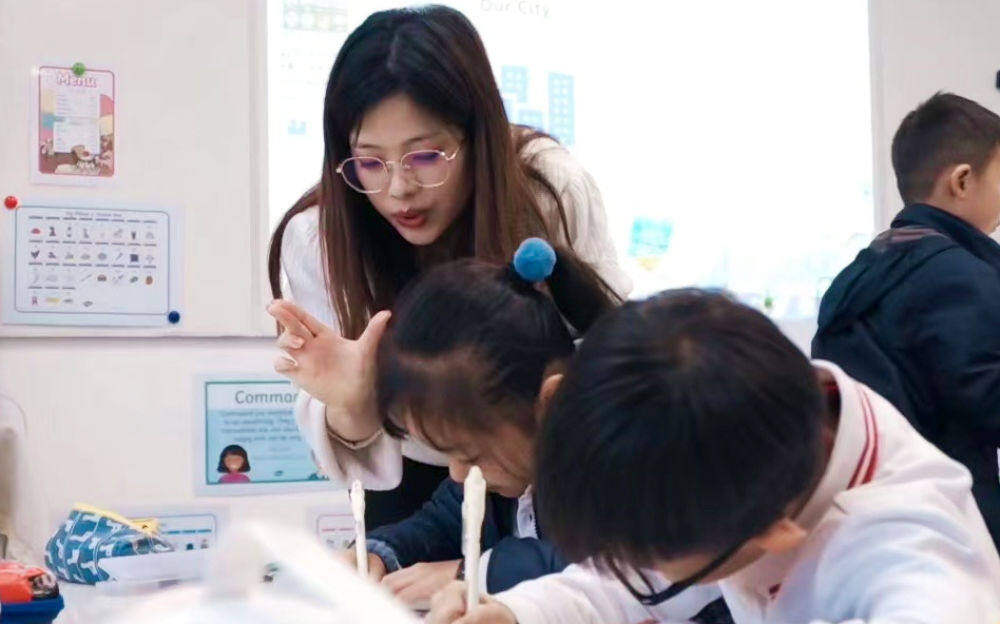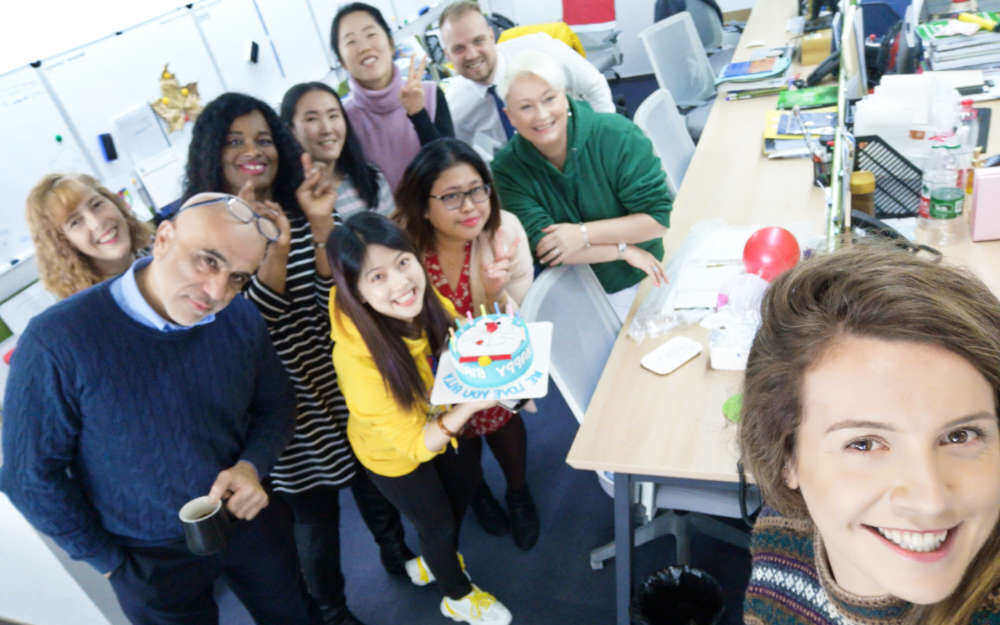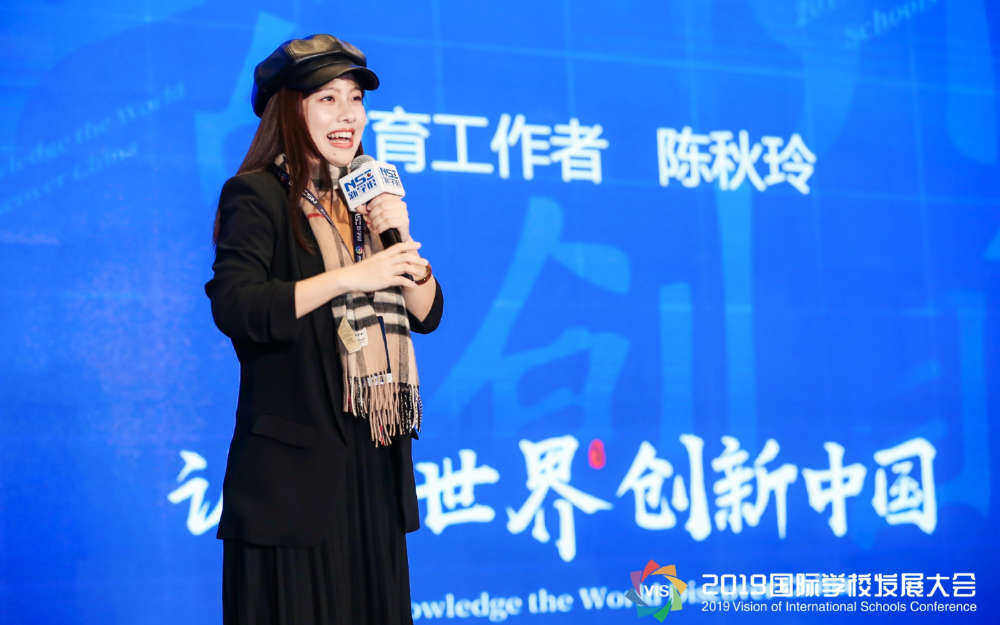Ally Chen has worked with Dipont since 2019. Currently Head of Grade at RDFZ King’s College School Hangzhou, she has impressive experience in teacher training and support.

Here Ally talks about her time in the Dipont team, and how the bilingual education landscape has evolved in recent years.
What attracted you to join Dipont?
First, the headquarters are in Shanghai. Before, I worked in Guangdong. They say the education revolution in Shanghai is 4.0, while in Guangdong we are still doing 3.0, so I wanted to work in Shanghai!
I also knew that Dipont was a mature company with a lot of experienced staff, so I thought it would be a good place to develop myself professionally. I had also heard that it was a very multicultural company that treated employees well, so that attracted me as well.
What was your role at headquarters?
I worked as Primary Academic Manager. I visited schools to observe lessons and do QAs, and coach teachers. That gave me a good idea of how the different schools work. We also worked on integrating national and western curricula for Grades 1-6. The material we made is still being used now!

▲ Ally’s current role is Head of Grade at RDFZ King’s College School Hangzhou
What are the unique challenges of working in a bilingual team?
Most expat teachers come from a background focused more on encouraging inquiry-based learning, and teaching students as lifelong learners. However, our local teachers also need to focus on short-term outcomes, to show the school, the local education bureau, and the parents the progress of the students. So the long- and short-term goals can sometimes be in conflict.
An example of this is assessment. Local teachers are focused on summative assessment so that they can communicate with parents better with data, while expat teachers consider formative assessment as being more important. They think we should communicate more about students learning habits and so on, rather than on marks, or levels. Because expat teachers don’t have as much direct contact with parents, they sometimes may not be aware of the parent’s perspective or of the pressure local teachers are under to show results.
On the other hand, the expat teacher’s philosophy also impacts on local teacher’s vision of education. Although we argue quite often we are always able to understand each other eventually. This can help everyone grow and become more flexible and adaptive. We learn from each other all the time.
You often hear expat teachers say: “The parents don’t know what their kids need, we know what they need!” How do you deal with that statement?
I think Hangzhou is unique in that, even in one class, there is a lot of diversity in the backgrounds of parents. Some of them have studied abroad, and all of them are very successful in their own career paths. I would say sometimes we can learn from the parents.
I always say to expat teachers that, not only can we learn from each other, but if we listen to parents maybe we can also get a better understanding of what they need, and what our school can do for students. Even though we are professional in teaching, there are always ways that we can improve.

▲ At Dipont, Ally has worked in supportive and close-knit multicultural teams
In your career, what changes have you noticed in international education?
Five or 10 years ago, or even still now in other schools, I think local teachers were considered simply as support to expat teachers. But at Dipont there is more of an understanding that expat and local teachers need to work together as equals to achieve the best results.
At Hangzhou this awareness makes people think in a more independent way because everyone can recognize themselves as great teachers. It’s not that only expat teachers are great or local teachers are great. Both of us are great. We consider each other as peers, or partners, instead of “I’m an assistant to you” or “You are an assistant to me”.
How have you developed professionally in your time with Dipont?
I’ve been lucky to work with great people, both at head office and here in Hangzhou. I’ve learnt a lot from high-level education professionals like Peter Derby-Crook and, before him, John Birchall. Working at head office really gave me a bigger vision of how we, as educators, can make changes for education in China.
Working at Hangzhou I’ve become better at communicating, and I’ve always felt like I’ve had support and guidance. Everyone is so transparent and willing to share their thinking and their resources. We can talk to anybody we want to, about support, how we can improve in our roles, or even how we can get to the next step in our careers. There is a lot of cooperation and empathy here, I’ve found.

▲ Ally feels she has become better at communicating since joining Dipont
What skills do you need to succeed at Dipont?
Be confident. Always try to communicate, instead of hiding, because everyone will listen to you if you want to be heard. Be open-minded. Be courageous. Have the courage to make mistakes and learn from them. Be bold, and you will be rewarded. That’s always been my experience!
What would you say to a Chinese education professional to encourage them to join us?
Dipont is a great company to work for. It is stable yet dynamic in its vision for education in China. Working here is challenging, but rewarding also. Dipont really cares about its staff. This is a great place to grow your skills and advance your career.

